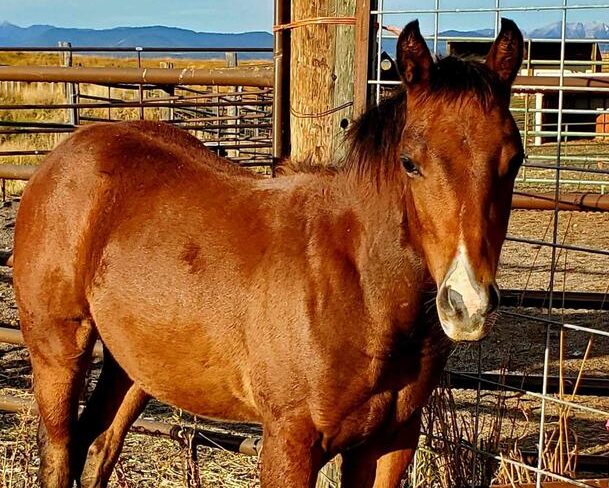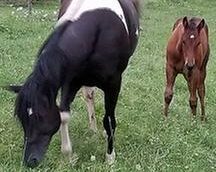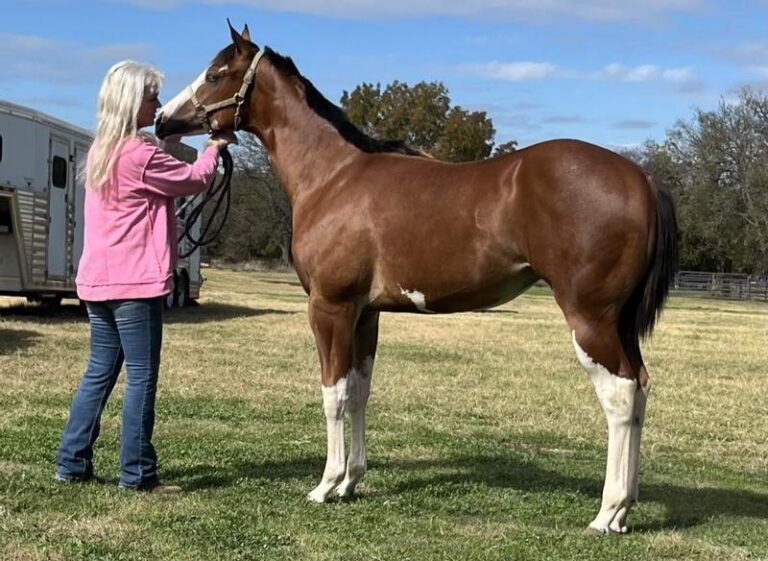
Horse Feed for Broodmares
What is the best horse feed for broodmares? Find out what ingredients set Nutrena® horse feed apart from other horse feed brands on the market and why we provide the best support for your breeding program, whether you have pregnant or lactating mares.
FAQs About Feeding Broodmares
If you’re a horse owner trying to understand the best diet for your pregnant or lactating mares, it’s important to read these frequently asked questions about ingredients, diet requirements, and what is guaranteed on your feeding tag. In order to choose the best horse feed for broodmares, you have to know what factors go into growing a healthy foal and how to compare different products on the market.
-
What Body Condition Score (BCS) is recommended for broodmares?
To prevent a drastic drop in body condition after foaling, it is essential for the mare to carry extra fat stores. Since it is challenging to increase feed intake dramatically after foaling, maintaining a body condition score of 6 when the mare foals is recommended. This ensures sufficient energy reserves for early lactation and maintaining condition for re-breeding. Mares in significant negative energy balance are less likely to rebreed easily and carry the next pregnancy successfully.
-
How can a ration balancer help maintain balanced nutrition during late gestation?
While good quality pasture or forage may provide sufficient energy during late gestation, they may lack essential amino acids and minerals. To address this, consider using a ration balancer product or a feed specifically designed for pregnant mares. From month 5 to about month 10 or 11 of gestation, these products can provide the necessary nutrients that may be lacking in the forage.
-
How can you prepare your mare for lactation?
It is advisable to introduce a feed designed for broodmares and foals before foaling to allow the mare to adjust to the feed well in advance. Introducing a new feed immediately before foaling, when the mare is under significant stress, should be avoided. After foaling, the feed can be increased to provide the additional energy and nutrients required for lactation. This feed will also contribute to the foal’s nutrition as it starts to nibble on feed.
-
What nutrition is required for your mare’s lactation and postpartum?
During lactation, a mare’s energy needs can easily double compared to her maintenance requirements. Additionally, water consumption remains high while she produces milk for her offspring. As the mare’s milk production decreases around 13-24 weeks after giving birth, the diet can be adjusted slightly, gradually returning to the nutritional needs of a normal maintenance horse.
Properly feeding broodmares is crucial to minimize the risk of developmental problems for the foal and ensure the mare can rebreed successfully. By meeting their specific nutritional needs during pregnancy and lactation, horse owners can support the overall health and well-being of both the mare and the foal, setting the stage for future reproductive success.
-
How does Nutrena feed support broodmares differently than other feed brands?
Nutrena’s dedicated mare and foal feed, SafeChoice® Mare & Foal, is a controlled starch formula for pregnant or lactating mares, weanlings and yearlings that is nutritionally balanced with organic trace minerals to support structural development, antioxidants to support developing immune systems, Topline Balance® to support topline health and muscle, Nutri-Bloom Advantage® for easier nutrient absorption, and Digestive Shield™ for complete gut and immune health. Unlike some other horse feed brands, Nutrena offers whole horse nutrition to your broodmares and growing horses.
Save with our See the Difference Trial
Recommended Products
-
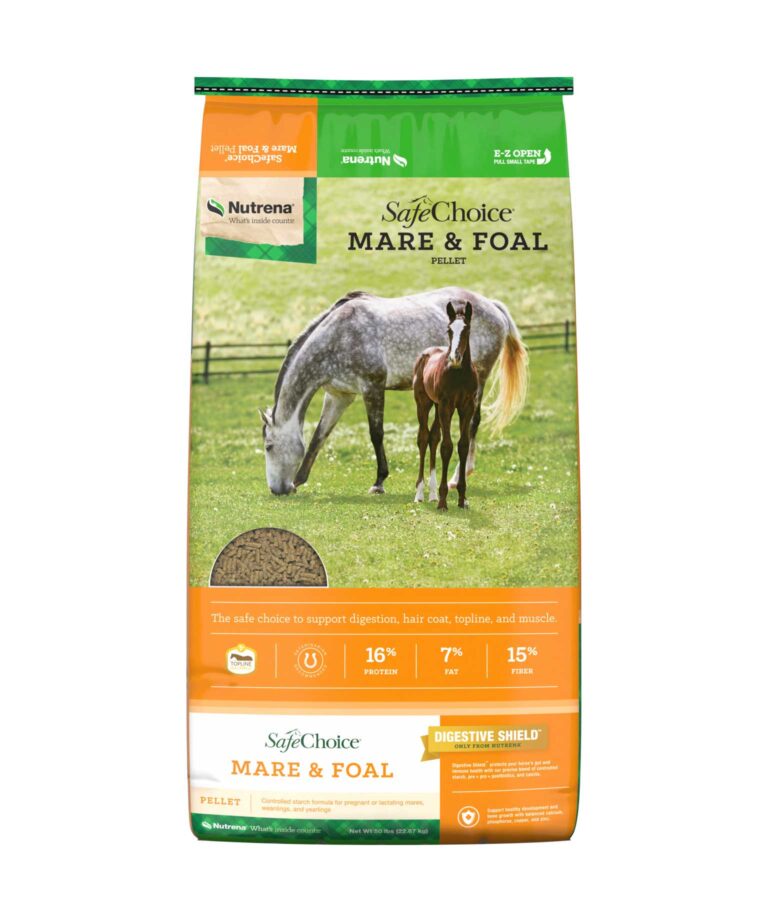 SafeChoice
SafeChoice
Mare & Foal
16.0% Crude Protein15.0% Max Crude Fiber7.0% Crude FatA controlled starch pelleted formula for pregnant or lactating mares, weanlings, and yearlings – now with Digestive Shield™Learn More -
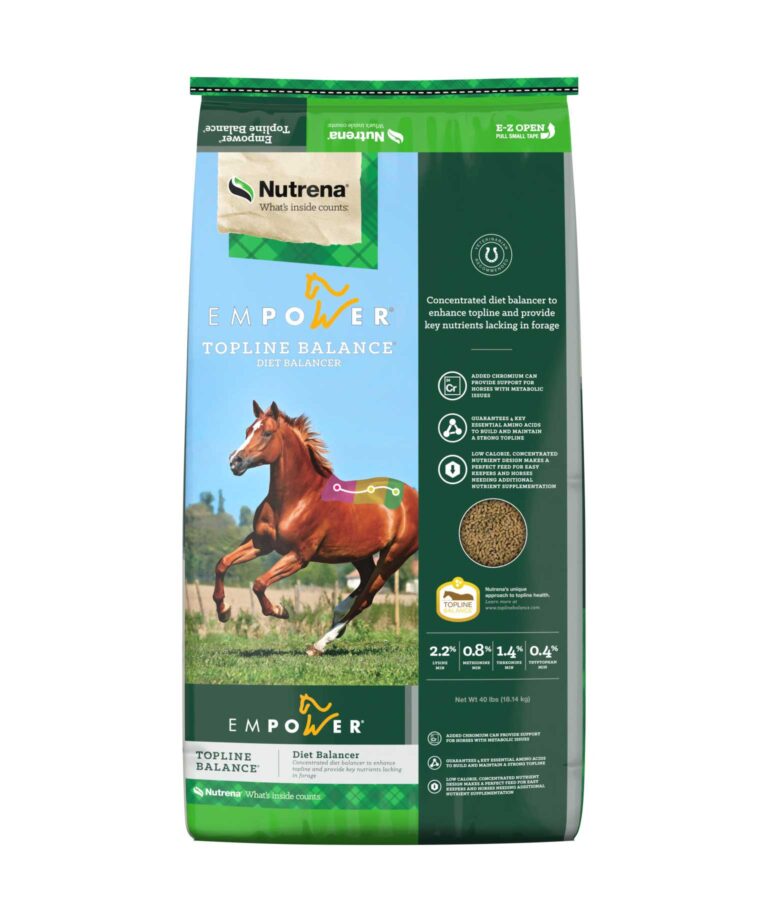 Empower
Empower
Topline Balance
30.0% Crude Protein8.0% Max Crude Fiber5.0% Crude FatConcentrated diet balancer to enhance topline and provide key nutrients lacking in forageLearn More -
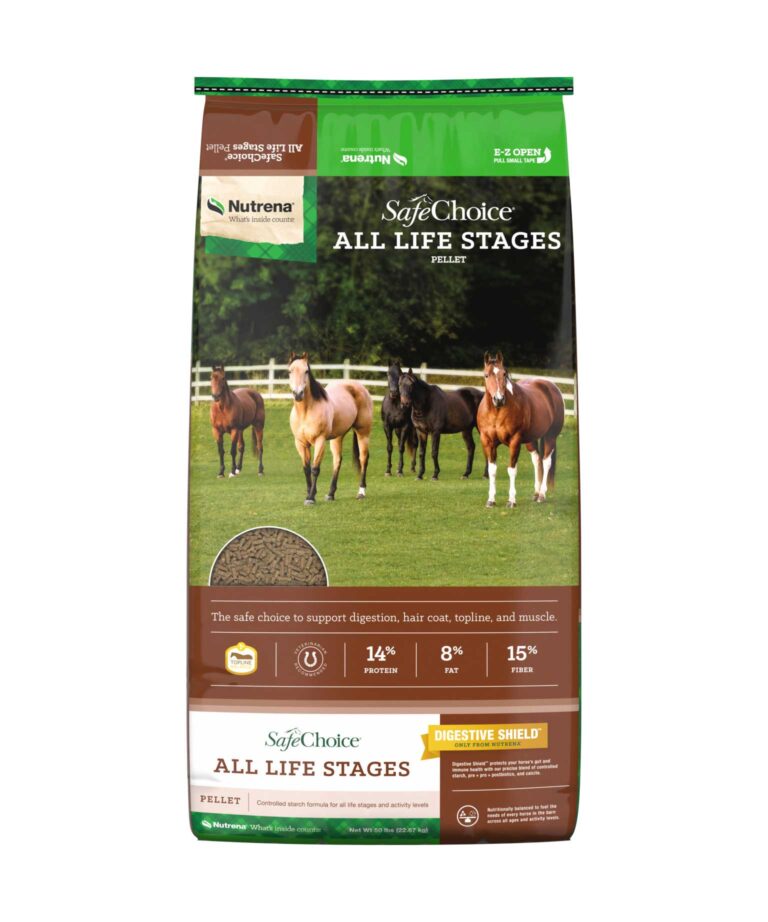 SafeChoice
SafeChoice
All Life Stages
14.0% Crude Protein15.0% Max Crude Fiber8.0% Crude FatNutritionally balanced, controlled starch formula for all life stages and activity levels including performance horses – now with Digestive Shield™Learn More
Get a FREE Consultation
Fill out our Contact Us form for an equine nutrition expert to provide 1-on-1 recommendations for your feeding program.
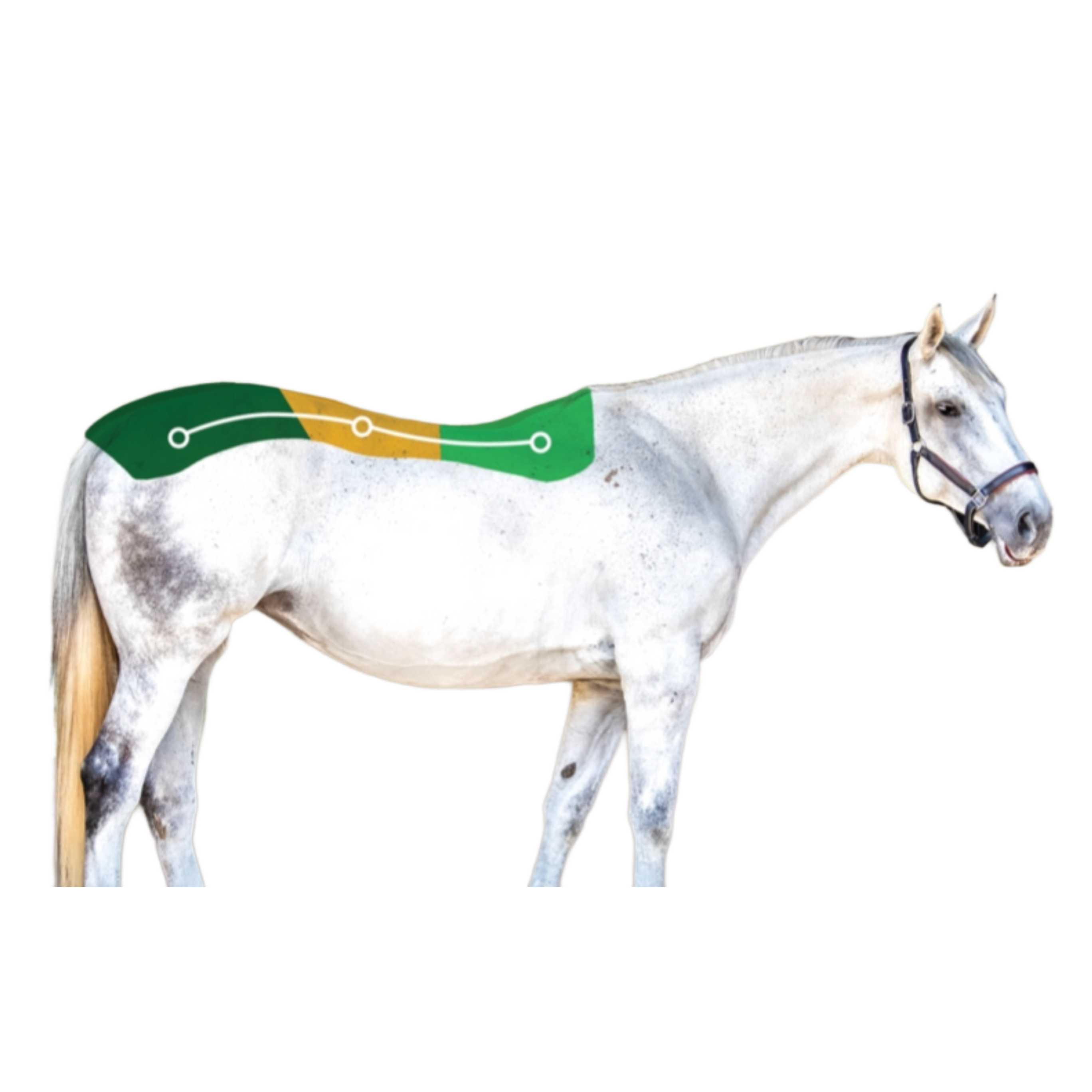
Topline Balance® Technology
Only from Nutrena
Nutrena’s Topline Balance includes a specific amino acid profile to help support healthy topline for proper muscling and core, which can help your broodmare during pregnancy and recovery. The SafeChoice® family of feeds and our Empower® Topline Balance ration balancer all provide and guarantee three critical amino acids – Lysine, Methionine and Threonine – in levels and ratios designed to impact the topline and entire muscle structure of the horse.
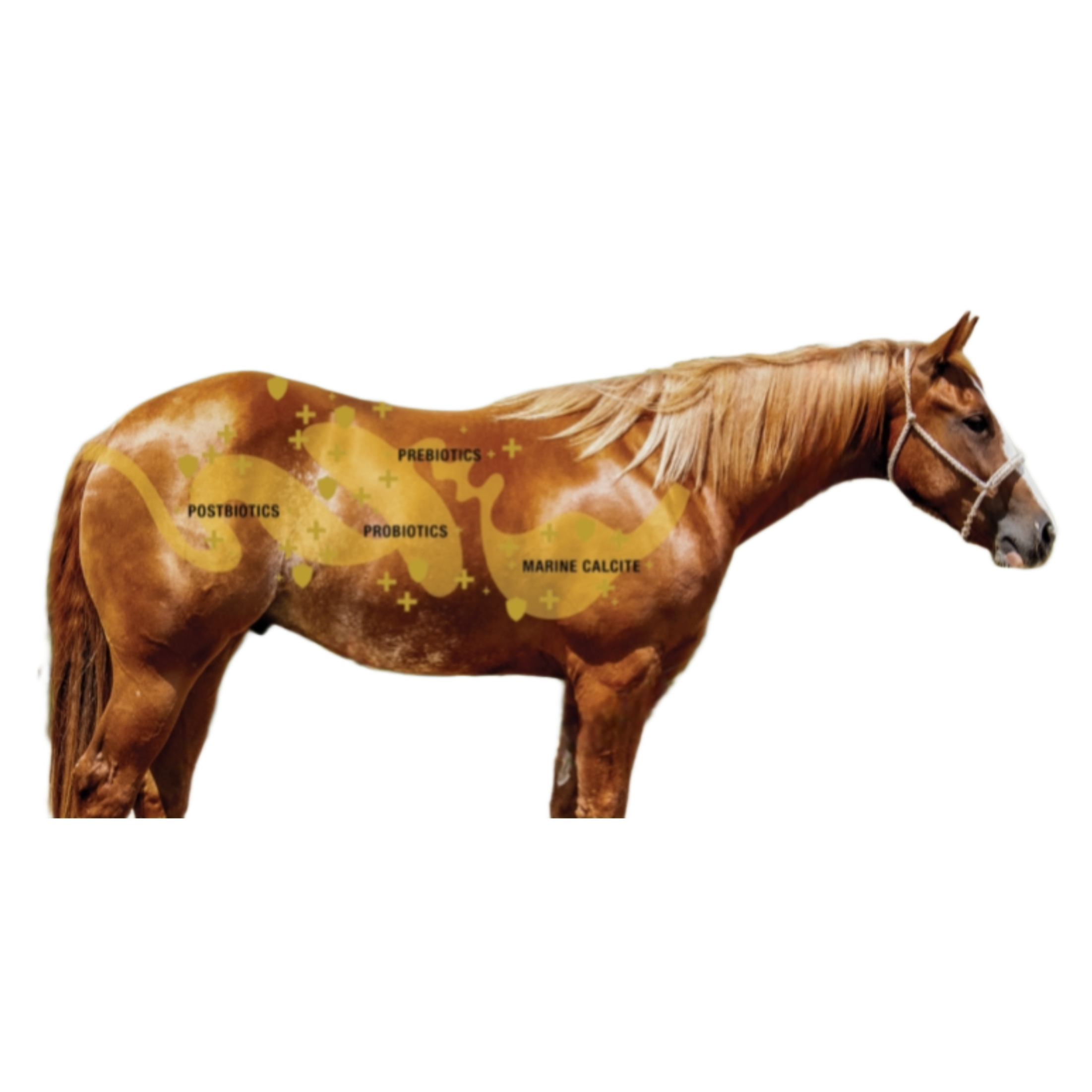
Digestive Shield™
Only from Nutrena
Digestive Shield™ is a new technology, exclusive to the Nutrena® brand, that supports gut health from end-to-end with a unique combination of controlled starch, calcite and pre + pro + postbiotics. Digestive Shield™ is one more way Nutrena® continues to work to promote the health and well-being of horses, including pregnant and lactating mares. Unlike some other broodmare-specific feeds, Nutrena SafeChoice® Mare & Foal guarantees pre + pro + postbiotics on our feed tags, so you can support your horse’s immune system and gut health, maintain microbiome and stomach pH, balance digestive system, digestive tract, overall health and performance.
Related Topics
-
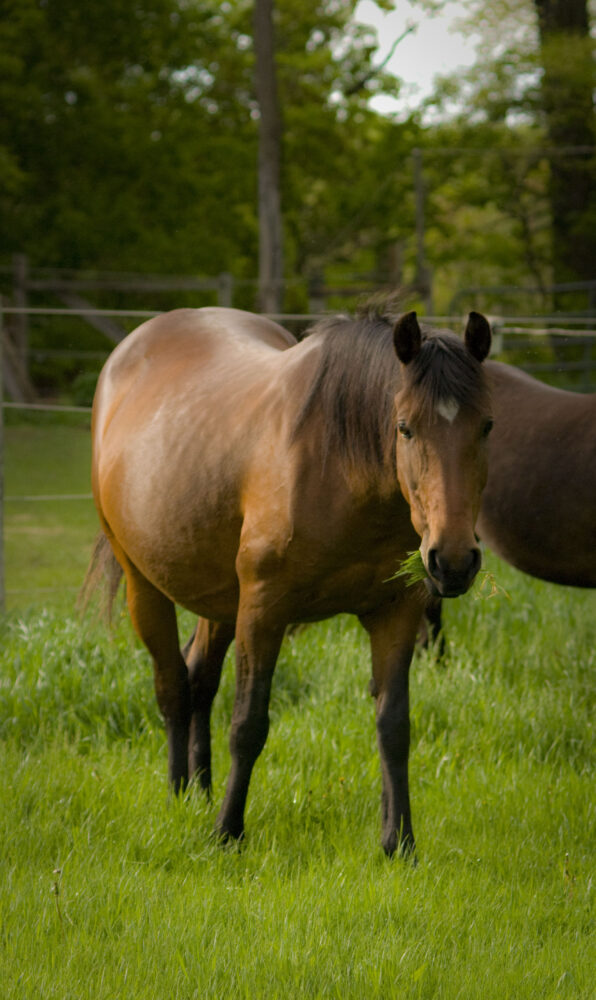
Feeding Broodmares
During a mare’s pregnancy, significant changes occur that cause her nutritional needs to increase substantially. This article provides guidelines for feeding broodmares to meet their specific nutritional requirements during pregnancy and lactation.
View Blog -
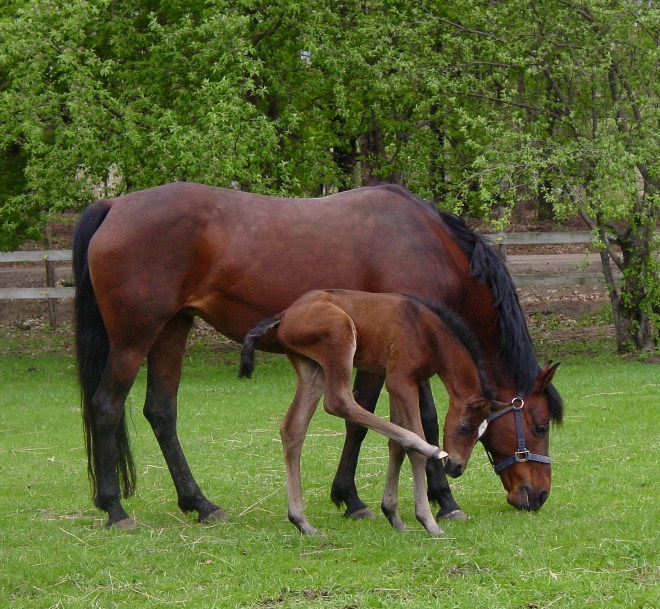
Proper Nutrition During Lactation
Proper nutrition for the broodmare during lactation is essential to make certain that she produces adequate milk for the foal and also maintains her body condition so that she will re-breed successfully and safely carry the next year’s foal.
View Blog -
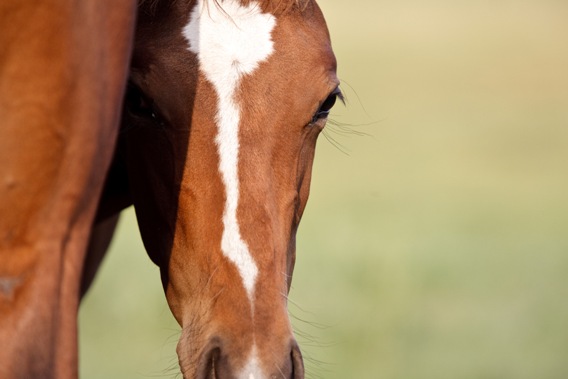
Milk Replacer for Foals
From birth to about 4 months of age milk replacers are a great option for orphaned or rejected foals, or foals needing supplementation. If a mare rejects her foal, these tips can help.
View Blog -
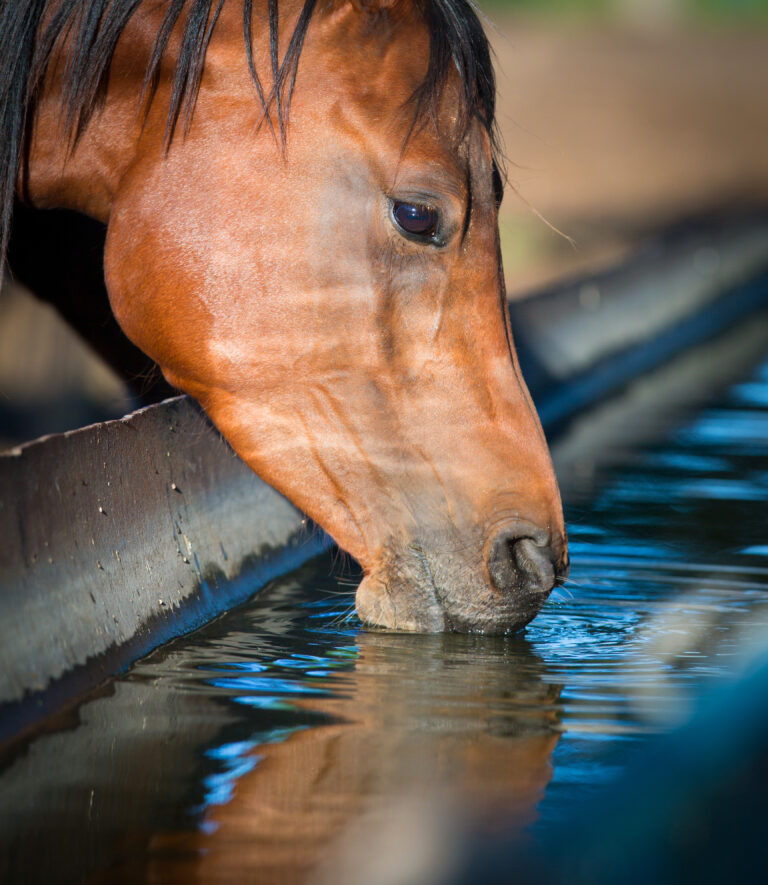
Prenatal Nutrition
The latter part of gestation is one of the most important development periods in the life of a foal when the foal is developing in the uterus of the mare. Read key elements of managing a pregnant mare’s diet.
View Blog
*Review collected as part of incentivized campaign

